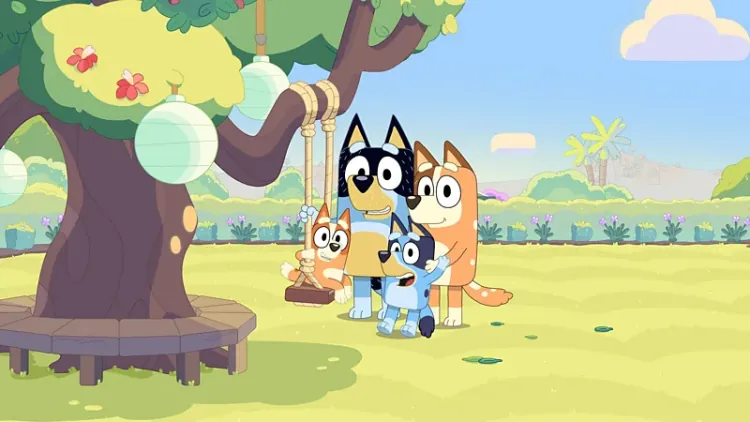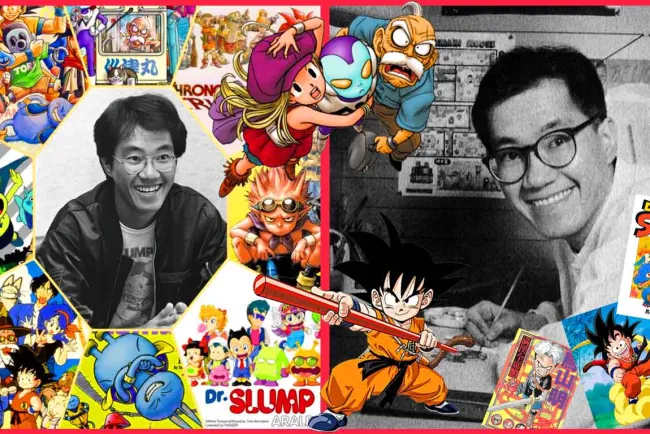Taoism in Bluey's Special Episode The Sign
Dive into the philosophical undertones of Bluey's episode "The Sign," where ancient Taoist principles illuminate life's inevitable changes, now streaming on Disney+

-
Introduction
- Brief introduction to "Bluey" and its global appeal.
- Overview of the special episode "The Sign" and its significance.
-
Plot Overview of "The Sign"
- Key events and themes in the episode.
- Introduction of Taoist philosophy through the narrative.
-
Taoism and Its Reflection in "The Sign"
- Explanation of Taoist principles depicted in the episode.
- Analysis of specific scenes that convey these ideas.
-
Philosophical Depth in Children's TV Shows
- Discussion on how "Bluey" integrates deep philosophical concepts into its storytelling.
- Comparison with other children’s shows that incorporate educational and philosophical elements.
-
Impact on Viewers: Kids and Adults
- How the episode appeals to and impacts different age groups.
- Specific reactions from the audience and critics.
-
Conclusion
- Recap of the main insights from "The Sign."
- Reflection on the importance of incorporating meaningful content in children's programming.
-
FAQs
- What is the main message of "The Sign" in "Bluey"?
- How does Taoism influence the narrative of the episode?
- Can adults gain insights from watching "Bluey"?
Introduction
"Bluey," the beloved Australian animated series, has not only captured the hearts of children worldwide but also garnered the appreciation of adults, thanks to its profound storytelling and engaging themes. The episode "The Sign," recently premiered on Disney+, stands out as a particularly significant episode that explores complex themes through the lens of ancient Taoist philosophy.
Plot Overview of "The Sign"
In "The Sign," viewers follow the Heeler family as they navigate significant life changes, including the potential sale of their family home. The episode beautifully weaves in life lessons through a wedding and other family dynamics, making it a narrative rich with emotional depth and learning moments for both young and old viewers.
Taoism and Its Reflection in "The Sign"
Taoism, a philosophy of harmony with the universe, is a central theme in "The Sign." The episode introduces viewers to this philosophy through a story read by Bluey's teacher, emphasizing the unpredictability of life events and the importance of maintaining balance and perspective. This ancient wisdom is delivered in a way that is accessible and profoundly resonant, even to the youngest viewers.
Philosophical Depth in Children's TV Shows
"Bluey" exemplifies how children's programming can transcend mere entertainment to offer meaningful life lessons. By comparing "Bluey" with other educational children's shows, we can see how integrating philosophical concepts helps in shaping a more thoughtful and aware younger generation.
Impact on Viewers: Kids and Adults
While children enjoy the colorful animation and playful characters, adults find a deeper connection with the themes of life's unpredictability and change. "The Sign" has sparked discussions among viewers and critics alike, highlighting its success in resonating across different age groups and cultural backgrounds.
Conclusion
"The Sign" is more than just an episode of a children's TV show; it is a poignant exploration of life's inevitable changes and the ways we can understand and cope with them. "Bluey" continues to set a high standard for children's entertainment by embedding significant educational and philosophical messages within its captivating stories.
FAQs
What is the main message of "The Sign" in "Bluey"? The main message of "The Sign" revolves around embracing change and finding balance, reflecting Taoist beliefs in accepting life's unpredictability.
How does Taoism influence the narrative of the episode? Taoism influences the narrative by introducing the concept of ambiguity in life events—highlighting that what may initially appear as good or bad luck can change over time.
Can adults gain insights from watching "Bluey"? Absolutely. Adults can find profound messages about parenting, personal growth, and dealing with life's challenges, making "Bluey" a rich source of reflection for viewers of all ages.
Discover more about the philosophical layers of "Bluey" on Kiksee Magazine.
What's Your Reaction?






















